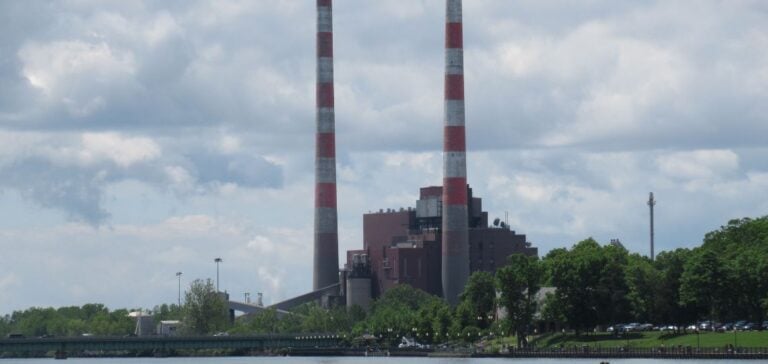DTE Energy announces the conversion of the former coal-fired power plant in Trenton Channel, Michigan, into a battery energy storage center. Scheduled for completion in 2026, the project will become the largest autonomous energy storage facility in the Great Lakes region. This initiative is a key step in DTE ‘s strategy to achieve carbon neutrality. The new facility will store up to 220 megawatts of electricity, enough to power nearly 40,000 homes. This project will reduce pressure on the power grid and enable better management of electricity production in line with fluctuations in demand. The cost of transformation will be offset by the $140 million in tax incentives provided by the Inflation Reduction Act and investment in infrastructure.
Energy and regulatory context
The closure of the Trenton Channel power station in 2022 is part of DTE’s plan to reduce carbon emissions. In November, Michigan established an energy storage standard with a target of 2,500 megawatts by 2030, reinforcing the importance of storage solutions in the energy transition. According to a 2023 report by the International Energy Agency Renewables, the United States is set to add 337 gigawatts of renewable energy capacity by 2028. The transformation of the Trenton Channel site is part of this national drive to develop renewable energies.
Financial and Technological Impact
The storage center will store excess energy generated during periods of low demand and redistribute it during periods of high demand, increasing grid efficiency. “Today, around a third of the electricity produced by DTE comes from carbon-free resources,” stresses Jerry Norcia, CEO of DTE Energy. The tax incentives and infrastructure investments provided for under the Inflation Reduction Act are essential for financing these projects. They help stimulate innovation and public-private partnerships in the energy sector, contributing to a more resilient energy economy.





















